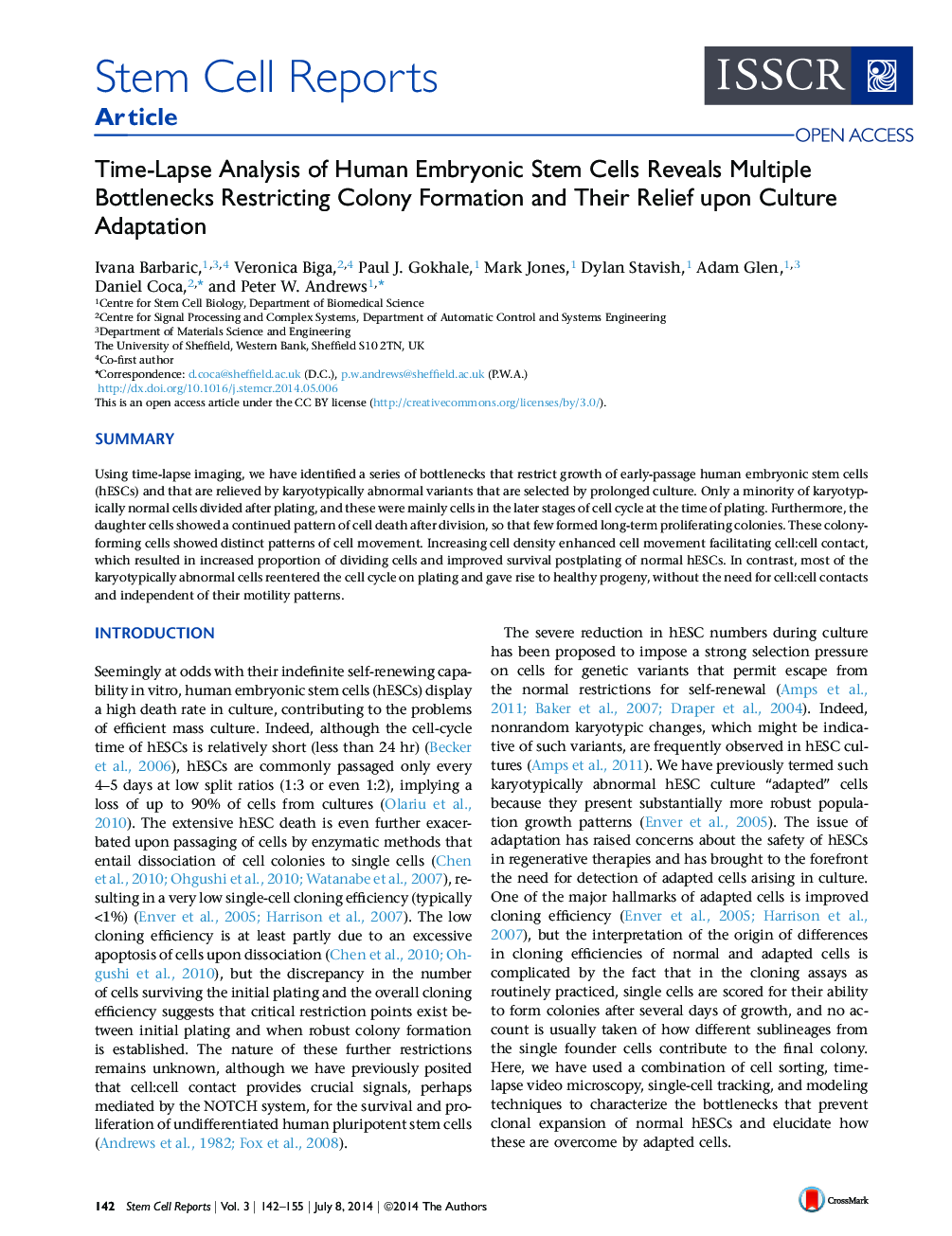| کد مقاله | کد نشریه | سال انتشار | مقاله انگلیسی | نسخه تمام متن |
|---|---|---|---|---|
| 2093387 | 1081956 | 2014 | 14 صفحه PDF | دانلود رایگان |
• The growth of karyotypically normal hESCs is limited by multiple bottlenecks
• Bottlenecks include initial survival, entry into mitosis, and death following mitosis
• A privileged clonogenic state in normal hESCs is characterized by distinct motility
• Variant adapted cells and ROCK inhibition alleviate identified bottlenecks
SummaryUsing time-lapse imaging, we have identified a series of bottlenecks that restrict growth of early-passage human embryonic stem cells (hESCs) and that are relieved by karyotypically abnormal variants that are selected by prolonged culture. Only a minority of karyotypically normal cells divided after plating, and these were mainly cells in the later stages of cell cycle at the time of plating. Furthermore, the daughter cells showed a continued pattern of cell death after division, so that few formed long-term proliferating colonies. These colony-forming cells showed distinct patterns of cell movement. Increasing cell density enhanced cell movement facilitating cell:cell contact, which resulted in increased proportion of dividing cells and improved survival postplating of normal hESCs. In contrast, most of the karyotypically abnormal cells reentered the cell cycle on plating and gave rise to healthy progeny, without the need for cell:cell contacts and independent of their motility patterns.
Graphical AbstractFigure optionsDownload as PowerPoint slide
Journal: - Volume 3, Issue 1, 8 July 2014, Pages 142–155
